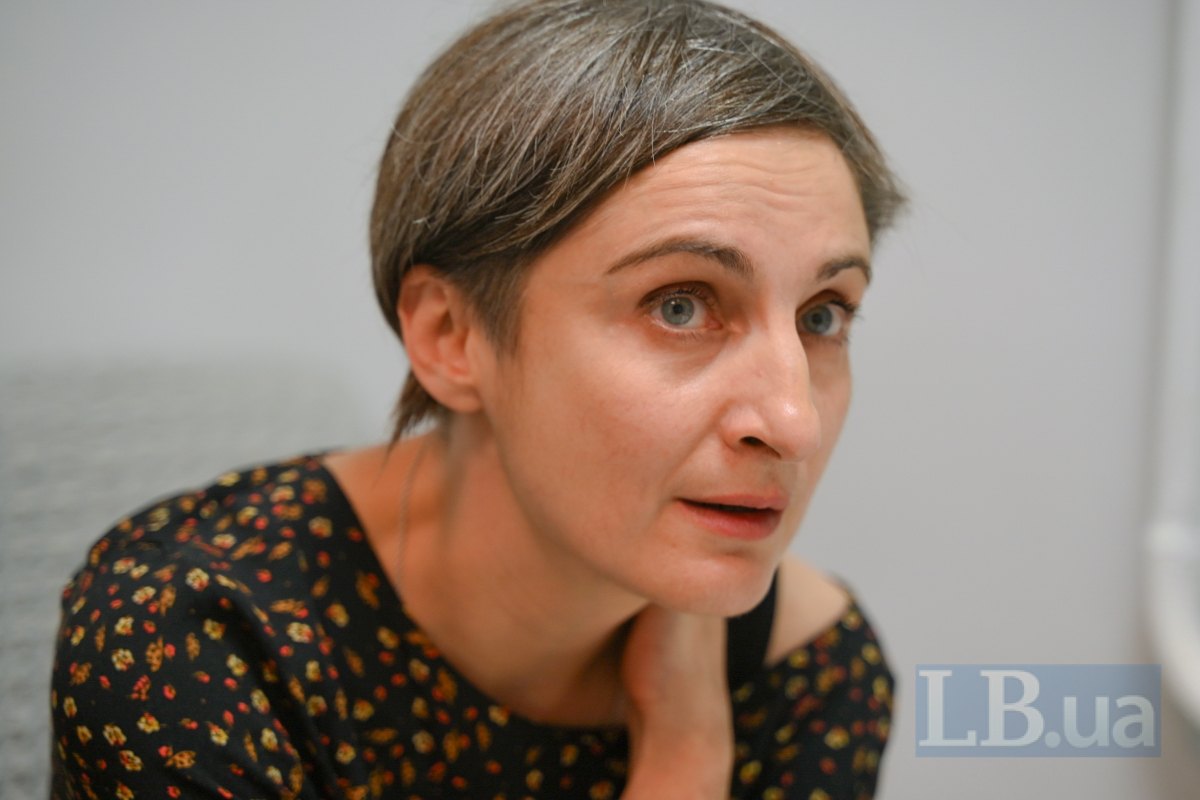
‘The space of the Golden Gate Theatre is very reminiscent of those German cabarets of the 1920s.’
You are currently preparing a play by Bertolt Brecht. You have worked with this author before: in 2022, you were preparing Mother Courage, but you did not manage to premiere it because of the war. What is it about Brecht that appeals to you?
I think that now is Brecht's time, because all his texts are connected with war in one way or another. In 2022, we were really looking forward to the premiere of Mother Courage, which was scheduled for 24 February. We even released a poster with that date on it. But our workshops couldn't get everything ready in time, so we had to postpone it until early March. The new poster featured a large letter Z — at that time, it was just a letter; and this poster hung for a long time, when the city was already empty, when people were hiding in the metro and the theatre had also become a shelter — and no one paid any attention to this Z until we ourselves came to our senses.
My first encounter with Brecht was in 2014, when the war began. At that time, I was staging Mother Courage with my students (at the Anima training theatre of the Kotlyarevskyy Kharkiv National University of Arts — Ed.). There were many students from Donetsk, Luhansk and Crimea in my class. And then Brecht helped us work through the issues that arose.
In the theatre, we staged a completely different version — with music by Katya Palachova and a fantastic modern translation by Serhiy Zhadan. And the new production will also feature his translations.
Which of Brecht's works form the basis of the new production?
There will be many of his poems that reflect his entire biography. In total, Brecht wrote more than 2,300 poems, of which Serhiy translated 60, selecting them to present the full scope of his work, not just the programmatic pieces like The Legend of the Dead Soldier or the poems set to music by Jim Morrison (Alabama Song/Whisky Bar) or Nina Simone (Pirate Jenny). But the core of the performance is Brecht’s play Drums in the Night, brilliantly adapted by Andriy Bondarenko.
We truly have a wonderful team: the production is a co-creation of the Kharkiv Puppet Theatre and the Kyiv “Golden Gate” Theatre, with actors from both companies, and we’re also joined by the talented artist Mykhaylo Nikolayev, with whom we already staged Othello at the Left Bank Theatre.
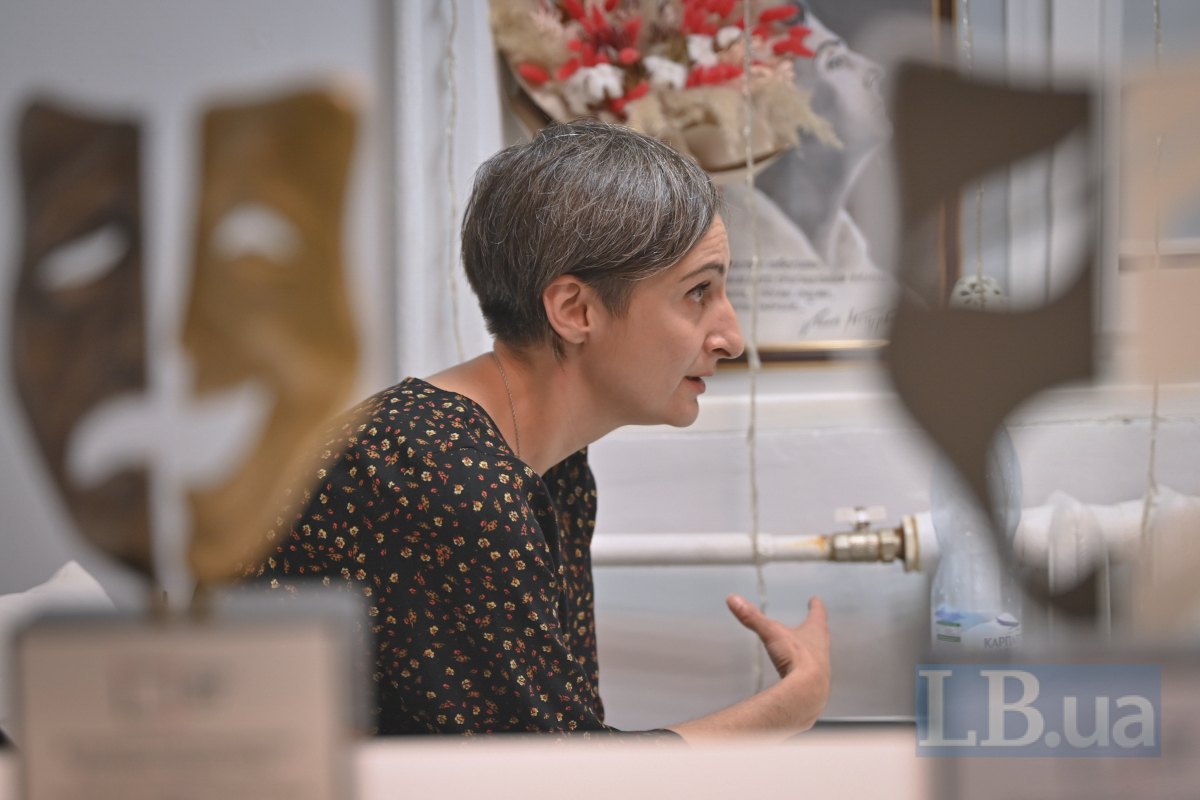
Why did you choose the cabaret format?
I was inspired by the space of the Golden Gate Theatre itself. It is a basement that is very reminiscent of those German cabarets of the 1920s. But in our production, there is a story within this cabaret form, it happens with the characters, and it becomes more important than the cabaret numbers.
‘Puppet theatre is much more complex because its language is more complex. It is a language of signs, symbols and metaphors.’
Will there be puppets in this production?
No, there will be no puppets.
It seems to me that lately you have been moving away from the dead plan to the living one. We can recall Medea, where puppets exist alongside actors, or Othello, where there are no puppets at all.
I am interested in working both with and without puppets. You know, I sometimes laugh at myself and say that when I get tired of puppets, I run to people, and when I get tired of people, I run to puppets. And I feel very comfortable with this running around. But in the new play, even though it has no puppets, I don't get rid of thinking in terms of animation theatre.
It should also be noted that nowadays it is much more difficult to put on a puppet show — there are many material aspects involved, requiring production and craftsmen. In general, little is known about puppet theatre here, and little is written about it.
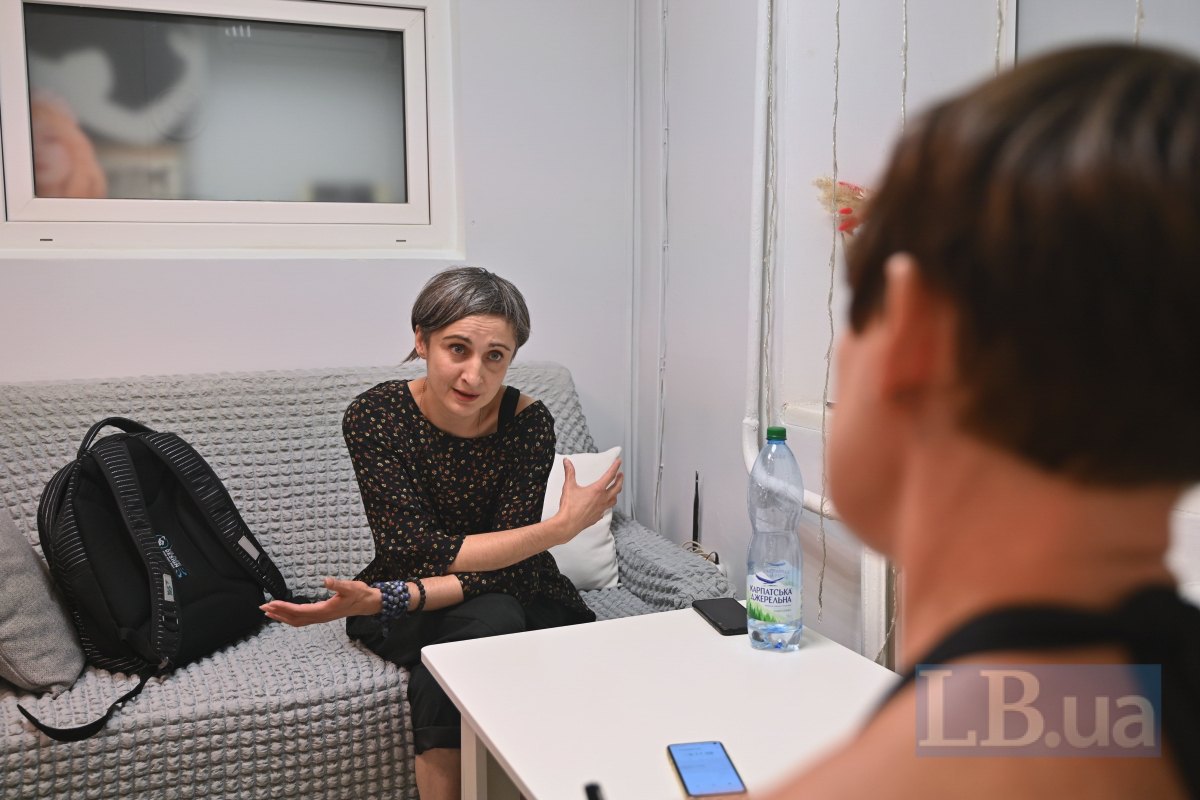
There is a widespread perception that puppet theatre is something childish and frivolous. And the Kharkiv Puppet Theatre, it seems to me, is changing that perception. I saw your productions of Vertep and Kalynova Sopilka during your tour in Kyiv — these are complex performances, not childish ones.
You are referring to performances that we put on during the full-scale invasion, when touring became more active. But there is also a large [puppet] repertoire planned for 2022, including Molière, Shakespeare and Marquez. But the territory of Kharkiv is sealed off.
However, it seems that you have worked in puppet theatres all over the country: in Kyiv, Poltava, Ternopil, Crimea.
Crimea is my alma mater, in fact. After graduation, I ended up at the Crimean Puppet Theatre, which was a very powerful theatre. Thanks to director Borys Azarov, we travelled a lot to festivals and communicated a lot with other theatres.
Why is it that theatres are powerful, but the field as a whole remains marginal?
I think this is a consequence of the Soviet Union, a legacy of the Soviet division of theatrical art. Puppet theatre is for children. They put a label on it, and now do whatever you want with it. But in general, puppet theatre is much more complex because its language is more complex. It is a language of signs, symbols, metaphors. It may not appeal to everyone, and that's okay.
Even if you take a children's play, it's like an iceberg. For a child, what is above the water is for an adult — below the water. If a play works with this return of an adult to childhood, pressing on some important buttons, it's a good play. This is how all the best films and cartoons for children are made. Just think of the fantastic humour of Disney cartoons, created with great respect for both children and adults.
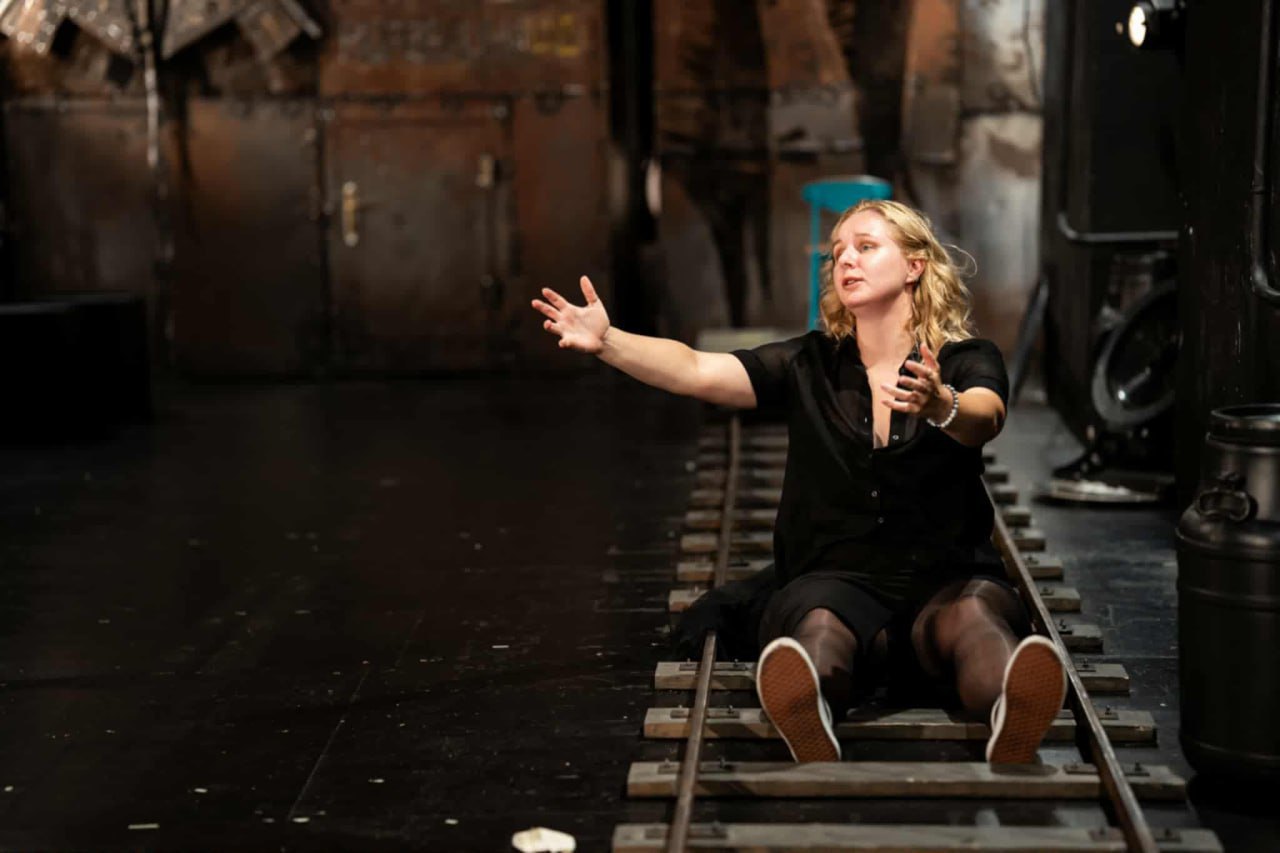
‘We don't need everyone suddenly starting to talk about war. That would be going too far.’
Let's return to Brecht and the new play. Is it more about the war that Brecht described, or is it about our war?
There is no specific time in this play; we are talking about war as a phenomenon. I really love this text by Brecht (Drums in the Night — Ed.), it is one of his first plays, and it is amazing, painfully funny. It has many civilian themes — feelings of guilt and attempts to live a normal life. But it is impossible to live like that. And now in Ukraine, the circumstances of war affect each of us. We struggle, we try to live without paying attention to these circumstances, we begin to adapt to them, some people start to profit from the war. But in reality, we are all very fragile. Every shelling of our cities literally speaks to this.
There are currently two opposing views in the theatre. The first is: if theatre is not about war, then what is it for? The second is: people are fragile, they need mental rest, so they should be given something cheerful and joyful. How do you feel about this dilemma?
All the productions I have done since 2022 are in one way or another related to the war. This is what helps me: I work through issues that bother me, and it becomes easier.
In general, when it comes to choosing what to play and what to stage, I think it is the personal responsibility and personal need of each artist. Indeed, people sometimes want to relax. I'm not talking about silly, vulgar comedies — that's beyond me — but there may well be some wonderful things that we want to watch and feel that we are alive and that we can feel something.
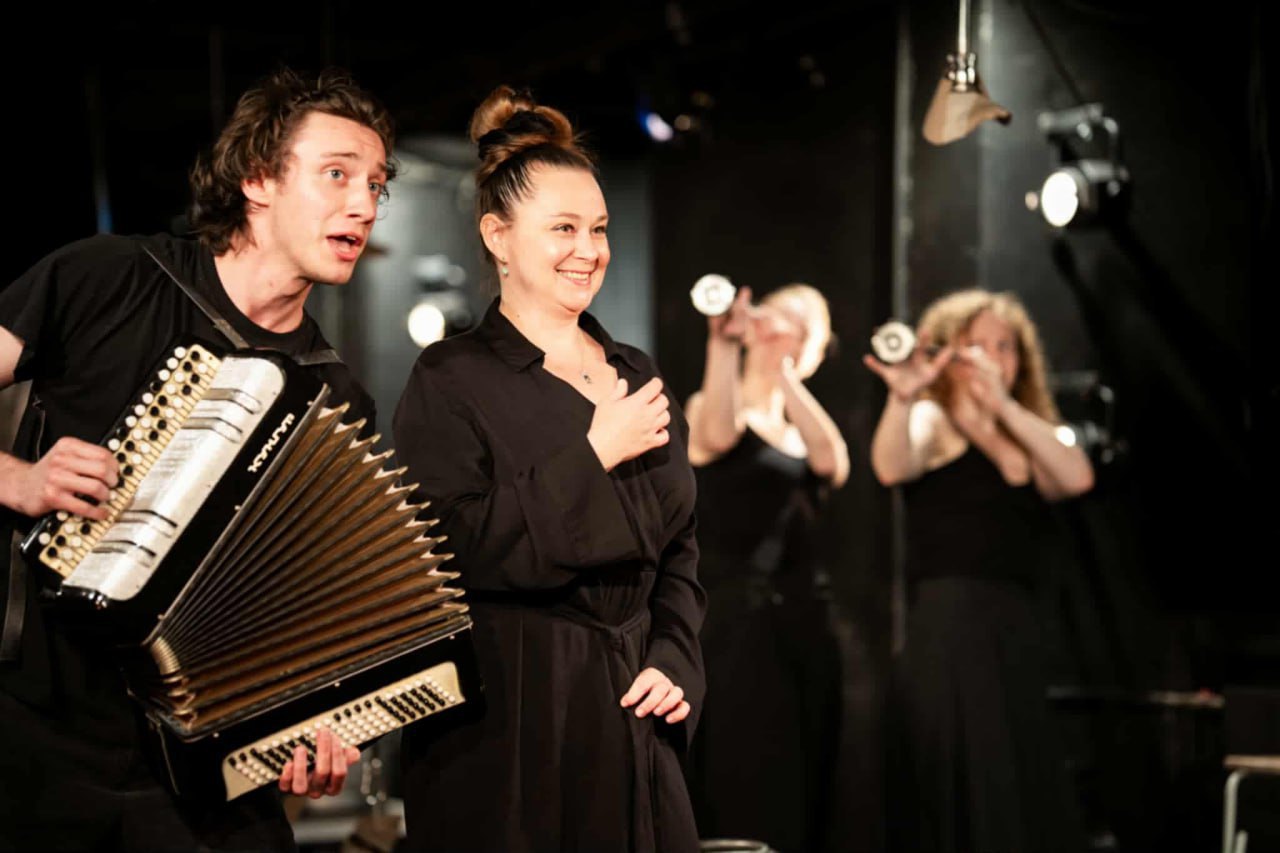
But when we talk about theatre, there is also an institutional dimension: what exactly theatres commission, what they include in their repertoire. In your opinion, is the balance in our repertoire normal?
I can't give a definite answer. But I think we don't need everyone to suddenly start staging plays about the war. That would be going too far. Although I constantly contradict myself. For example, in 2022, I said that now is not the time for theatre and that while the war is going on, I will not do anything [in theatre]. But a month later, I came to the theatre and said: let's do something, otherwise I'll go crazy. And we started performing in the metro.
Tell us about this experience. On the one hand, it's a surreal picture. But on the other hand, it has already entered the cultural canon, particularly the British one — novels have been written and films and series have been made about performances in the London Underground during the Blitz.
The whole of Kharkiv was surreal at that time: you walk through the city as if through empty scenery, feeling very small. I saw an advertisement: they were looking for people who could entertain children in the underground. I called, offered the services of our theatre — and we organised such a tour: we travelled through all the underground stations, performed fairy tales, it was very touching. There was one fairy tale about Princess Tsyatka — and so we performed it, and both children and adults watched, and some man said to our sound technician: sorry, I have to run, but I'll be back. Then he came running back, out of breath, and immediately asked: well, what happened, what happened to Tsyatka? There was a lot of tenderness and warmth. There were hugs and conversations. And it was the audience that restored our faith that we are needed.
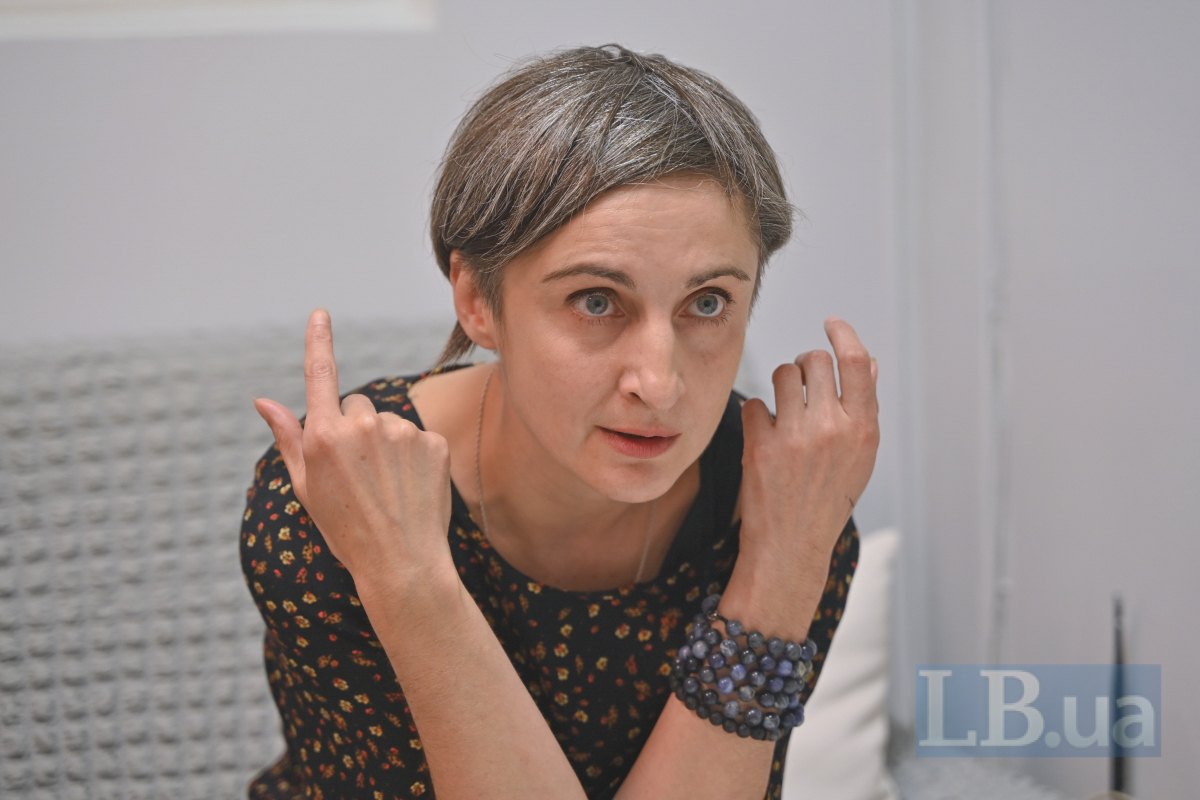
‘There is no cultural front, there is no theatre boom’
More than three years have passed, and it is now clear that the war has affected Ukrainian theatres in different ways, that theatres in cities close to the front line and theatres deep in the rear are different worlds. What is happening with theatres in Kharkiv now? In May, the military administration included four Kharkiv theatres, including yours, in the list of critical infrastructure — did that help in any way?
I am very grateful to all the artists who talked about it a lot, asked for attention — and finally we got critical infrastructure. Now we have three guys booked — just so you can get a sense of the scale. But it's difficult for us, and I won't even get started on funding. We can't perform in our own building, so we travel to various safe venues. Of the 30 people in the troupe, 12 remain. There's a lot of work — and there are few of us, so it's very hard work.
We put on three or four shows a year and travel a lot. Our theatre represented Ukraine for the first time at the festival in Charleville (World Puppetry Festival — Ed.), and its director was so moved by our ‘Giraffe Mons’ that he promised to organise a tour of France for us. (This performance is based on a Kharkiv urban legend about a giraffe that befriended a doctor during the German occupation and came to his house after the zoo was bombed, but was shot by a Nazi officer. The play, however, has a happy ending. — Ed.). We have been invited this autumn, but we cannot get permission for our guys to leave.
And who issues such permits now? Not the Ministry of Culture anymore?
No, now it is done by the Kharkiv military administration.
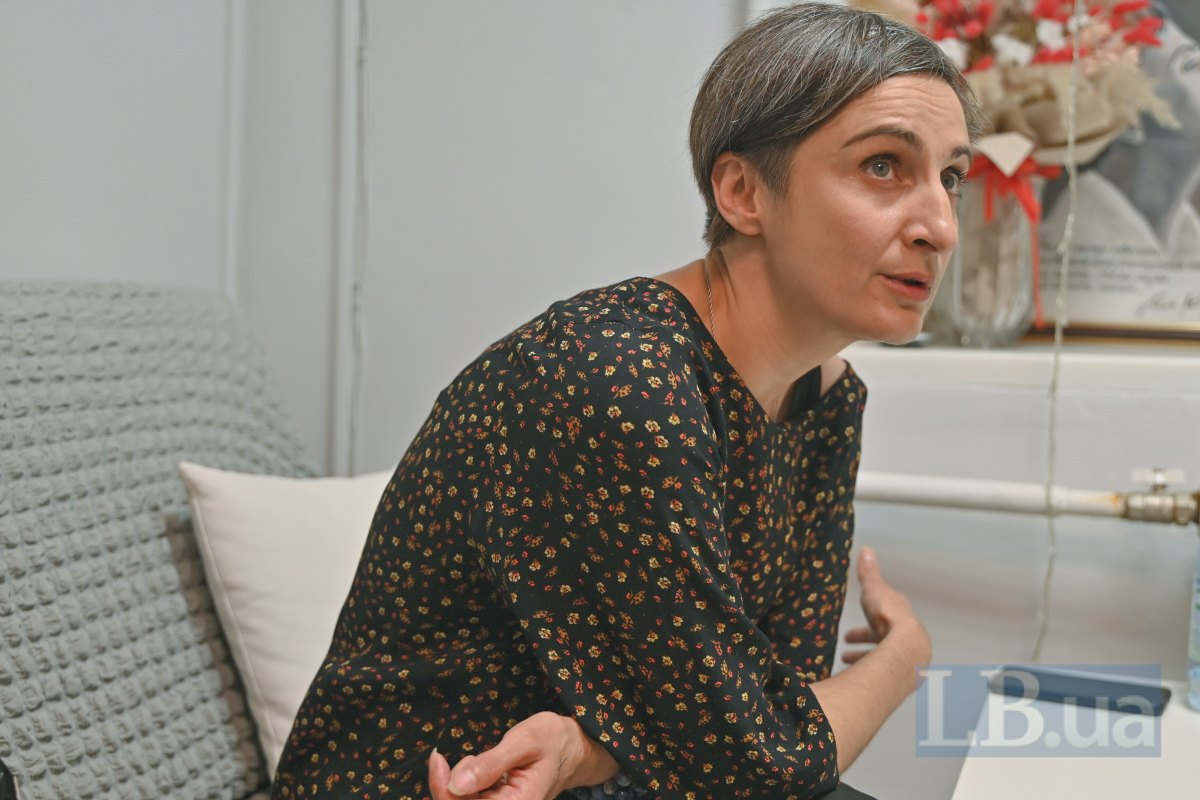
Don't they understand that such tours are an important part of cultural diplomacy?
They are worried that the boys will not return. The previous tour was in June, we were invited by the Munich [puppet] theatre — it was such a beautiful gesture, they had an anniversary and they chose the theatre they wanted to invite, they gave themselves such a gift. They chose us. And now they won't let our guys leave — but we can't refuse, because so much money and emotion has already been invested, and in general, this is an opportunity for Ukraine to talk about itself. So we decided to go anyway, and the girls learned the male roles on the way. In Europe, in Munich, we saw how little Ukrainian product there is there, how we need to fight for this territory.
So, if the administration does not give permission to travel to France, it will be another missed opportunity for both the theatre and Ukraine. I also wanted to ask if you plan to take the new Brecht to Germany...
Don't even ask (laughs).
Okay. Then I'll ask about another painful topic for our theatre: violence and harassment. This topic has been coming up constantly lately: remember the cases of directors Andriy Bilous and Linas Zaikauskas, and most recently the story of actor Kostyantyn Temlyak. Comment on this as a director.
I am very grateful to those who raise this issue and make it transparent. Thank God that people at the Molodyy Theatre can now work in peace. But as for me personally, I have never had any problems in a male-dominated world. Perhaps it's just my lucky nature. For me, the most important thing in life is not a woman or a man; the most important thing is a person.
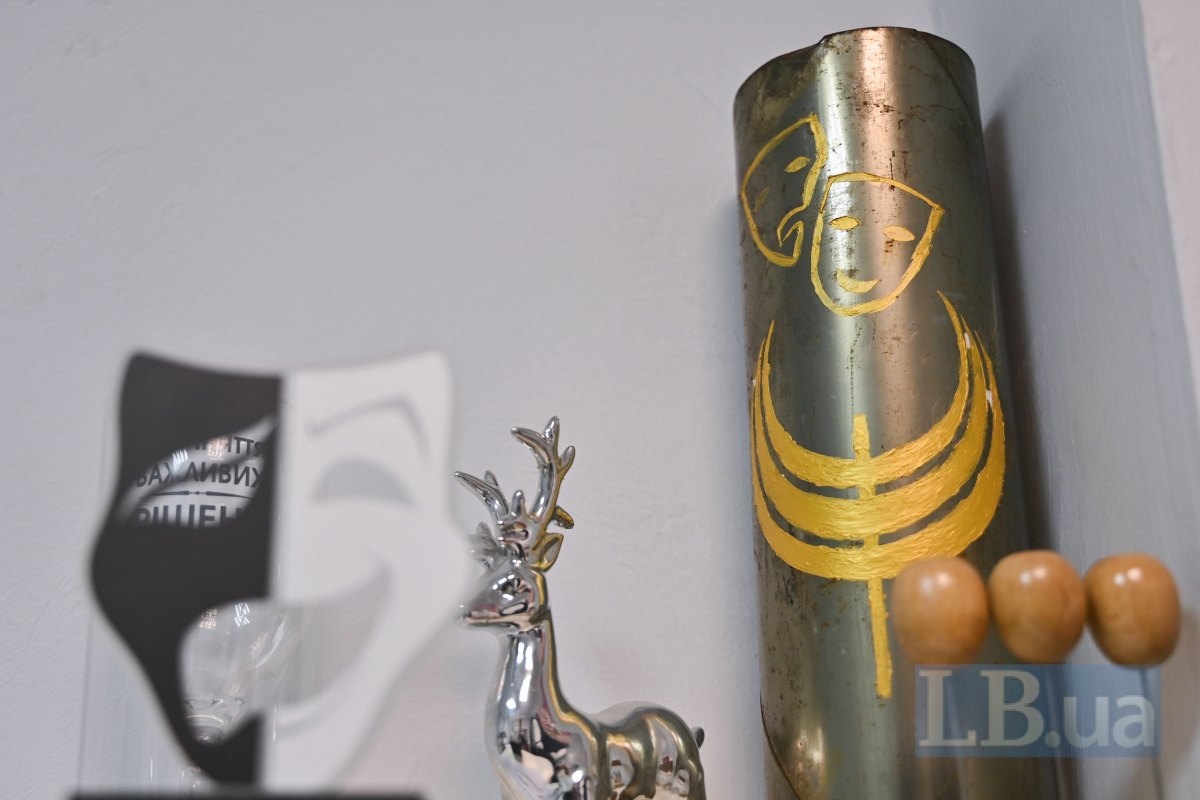
Another theatrical topic that is currently being discussed is the so-called theatre boom. This refers to tickets for certain directors at certain theatres being sold out months in advance. But people talk about it as if some great progress has been made in theatre. Do you see this boom?
In our new play, we are actually being a little ironic about this boom. I don't really like the word; it sounds somewhat childish in the space we live in. The expression ‘cultural front’ sounds just as childish, for example. There is no cultural front, there is no theatre boom — for me, these are just ways of ‘making noise’ about the reality that is happening to us, and it annoys me.
***
The play Brecht.Cabaret was created with the support of the Ukrainian Cultural Foundation.









